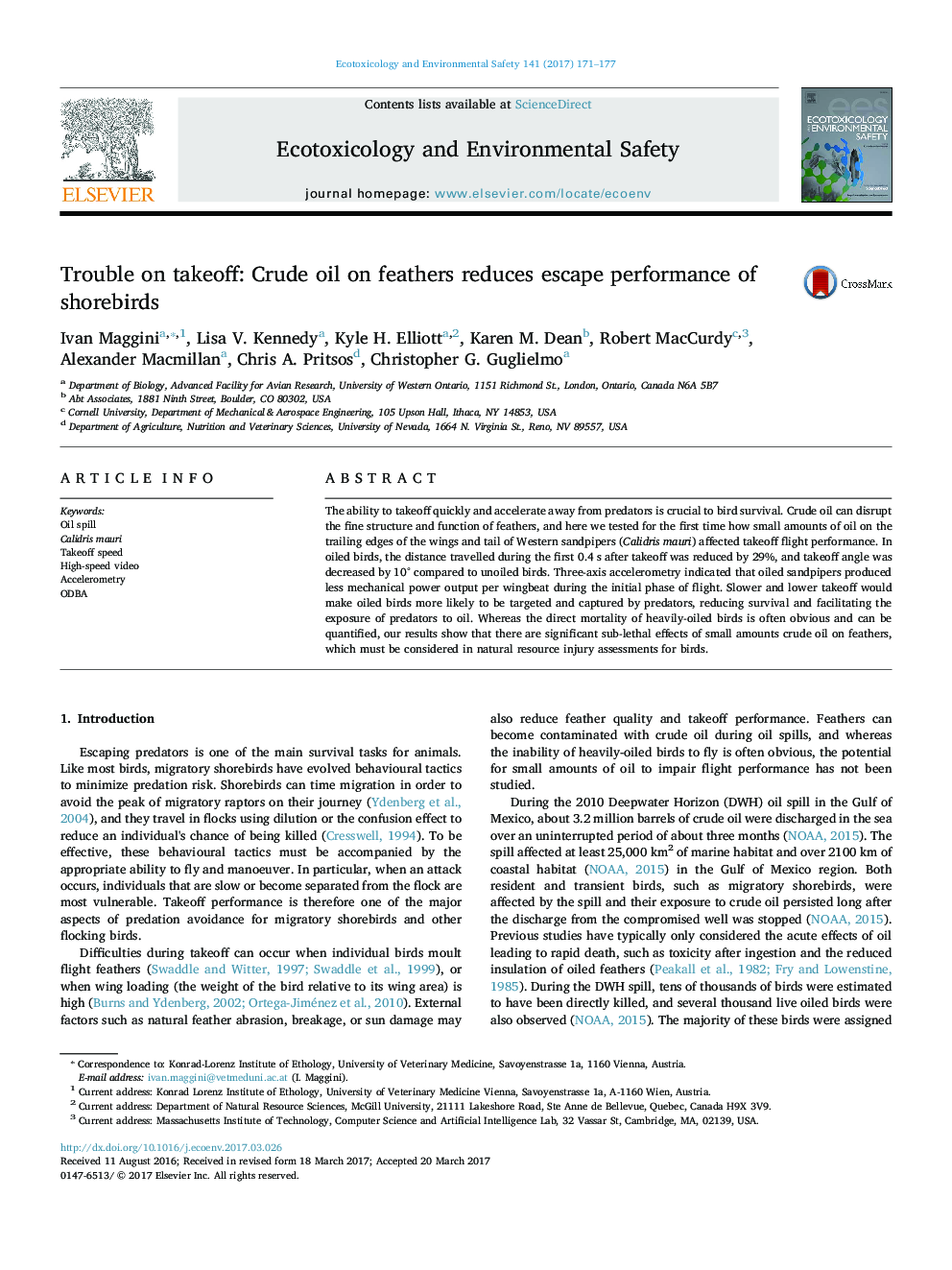| Article ID | Journal | Published Year | Pages | File Type |
|---|---|---|---|---|
| 5747903 | Ecotoxicology and Environmental Safety | 2017 | 7 Pages |
Abstract
The ability to takeoff quickly and accelerate away from predators is crucial to bird survival. Crude oil can disrupt the fine structure and function of feathers, and here we tested for the first time how small amounts of oil on the trailing edges of the wings and tail of Western sandpipers (Calidris mauri) affected takeoff flight performance. In oiled birds, the distance travelled during the first 0.4 s after takeoff was reduced by 29%, and takeoff angle was decreased by 10° compared to unoiled birds. Three-axis accelerometry indicated that oiled sandpipers produced less mechanical power output per wingbeat during the initial phase of flight. Slower and lower takeoff would make oiled birds more likely to be targeted and captured by predators, reducing survival and facilitating the exposure of predators to oil. Whereas the direct mortality of heavily-oiled birds is often obvious and can be quantified, our results show that there are significant sub-lethal effects of small amounts crude oil on feathers, which must be considered in natural resource injury assessments for birds.
Related Topics
Life Sciences
Environmental Science
Environmental Chemistry
Authors
Ivan Maggini, Lisa V. Kennedy, Kyle H. Elliott, Karen M. Dean, Robert MacCurdy, Alexander Macmillan, Chris A. Pritsos, Christopher G. Guglielmo,
